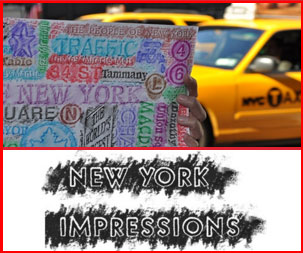There are some places wherever you live that you take to represent an important part of your life. Maybe a restaurant where you always go or a movie theater where you saw your favorite movie for the first time. Whatever the reason, these are places that you sentimentalize, maybe sometimes to a fault, because you identify them so closely with good memories.
One of those places for me is The Strand Bookstore. It was one of the first places I frequented when I began living in New York City as an adult.
At some point on just about every weekend I had off (I had to work most weekends), I would make a visit to The Strand a part of my routine. I would never fail to come home with a big bag full of books, sometimes two big bags. Wow, Crime and Punishment for only $3.99—how can I not buy that?? At some point I ended up with two different paperback copies of Anna Karena and gave one copy to a friend.
The Strand would be buzzing with people and I would spend hours wandering its cramped isles. I had a routine of starting with browsing the outside cheap bins (books for as little as 48 cents; it would be a crime not to rifle through every row of books) and making my way through the store, spending most of my time in the fiction section. Years later, I got to meet my guitar hero, Steve Jones of the Sex Pistols, when he did a book signing event for his memoir ‘Lonely Boy.’
But like many parts of my early life back in the city as an adult; I frequented The Strand less and less. At the time of the pandemic lockdown in mid-March, my time in Manhattan mostly consisted of sitting at a desk in the financial district or midtown and then getting home to Queens as quick as I could. I would occasionally go to a concert or local punk rock show, but those got fewer and farther between. The Strand has a kiosk in Times Square close to my job’s offices there, so I would get a chance to buy some books and a ‘Make America Read Again’ refrigerator magnet. But I ceased being a regular customer.
With the pandemic comes rafts of closures of institutions we thought would continue to be with us, at least through the duration of the virus. This was supposed to be over by now, but we can’t get our shit together enough to contain COVID-19, so things are still ground to a halt.
Recently the owner of The Strand bookstore issued a plea for help from the public to save it from closing. People responded, lining up around the block to buy books at the fabled institution or ordering books online from its web site.
The Strand is a landmark, but being a landmark is not enough. Many friends point out that other important cultural institutions, such as CBGB’s, did not survive to see the pandemic. Other places with deep histories have also not survived.
And The Strand’s ownership has not been entirely forthright. Earlier this year the owner accepted $1 million in in loans and still laid off workers while buying millions in stock, including more than $100,000 worth of Amazon shares. The Strand made a public show of its support to progressive causes while turning a blind eye to the plight of its own workers, so an important part of the store’s natural constituency is either indifferent or hostile to its future.
But an institution can be more than the sum of its owner’s conduct. I have loathed how the New York Yankees’ ownership tore down the House the Ruth Built and treats its fans like absolute garbage, yet I cannot bring myself to disavow the Bronx Bombers. We can detest the people who run our country and still be patriotic Americans. Do we owe The Strand loyalty for all that it has given us, despite the lack of principles by its current owner? I feel a loyalty to this great bookstore, though I understand those that don’t.
I yearn to lose hours of time in a bookstore again; to get the warm ego boost of a Strand cashier complimenting my choices, to amble to the subway laden with more tomes that will add to the ever-expanding walls of books in my home. Those days cannot come soon enough. In the meantime, I will do what I can to help keep the miles of books going.











